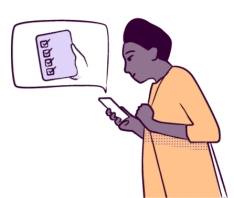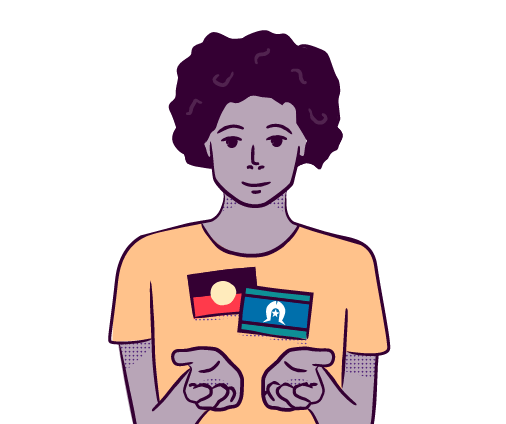
Support for Aboriginal and Torres Strait Islander people

Not feeling too flash? Or is someone you care about struggling?
Here are some tips and links to support you to stay mentally strong and feeling deadly!
When the storms of life appear, face them…bend, but don’t break.
Is talk of the Aboriginal and Torres Strait Islander Voice affecting you?
The national conversation on the Voice might negatively affect your mental health and wellbeing.
People will have different opinions about the Voice, which could lead to difficult conversations with family, friends and colleagues.
Sadly too, some people will express racist or negative views on social media and other channels.
It’s important to know there is support available.
Download the Factsheet for Mob for more information, or try these self-care resources.
Find out more about your service and support options on the Department of Health and Aged Care website.

Backing yourself – How are you going?
Sometimes we just don’t feel right. Our emotions and head feel all over the place. Often, we can become overwhelmed with the stress of life.
Small changes such as eating better, getting more sleep, exercising or doing your favourite things can help. Taking time for self-care, such as connecting with country, and yarning with mob and supportive people are great steps to help us bounce back.
Learn more about living well and what you can do to support your mental health and wellbeing.
Getting support – What can you do to get help?
Sometimes, you will need to get professional support when things get too much. It’s easy to get support, and you will feel better when you do.
If you’re feeling unwell mentally or overly stressed, it’s important to take it seriously. It’s time to get support now, and this can be your first step.
There are health workers that can support you and get you feeling back on track. If you don’t have a current GP or medical practice that you go to, Head to Health can help you find one.
Head to Health can also help explore your options and learn how to access the support that’s right for you.
It can feel daunting to talk about your mental health with someone else, but you’re not alone. Learn how to start a conversation when you want support.

Supporting someone else – How can you help others?
It can be hard seeing someone you care about struggling with something. And it’s natural to be unsure about what you can do to give them support. But there are practical things you can do to help.
Just being there can make a difference. Sometimes the best thing you can do is listen without judgment, ask what is happening for them and help them to access professional support.

Connecting with culture, country, and kin
Our Aboriginal and Torres Strait Islander community have a special connection to people and place in this country. This connection can be an important tool to keep Aboriginal and Torres Strait Islander people feeling strong in mind, body and spirit.
Some Aboriginal and Torres Strait Islander people use the term “social and emotional wellbeing” (SEWB) to describe the social, emotional, spiritual and cultural wellbeing of a person. The term recognises a person’s connection to land, sea, culture, spirituality, family and community. These things are important and impact our wellbeing. It also recognises that a person’s wellbeing is influenced by policies and past events.

